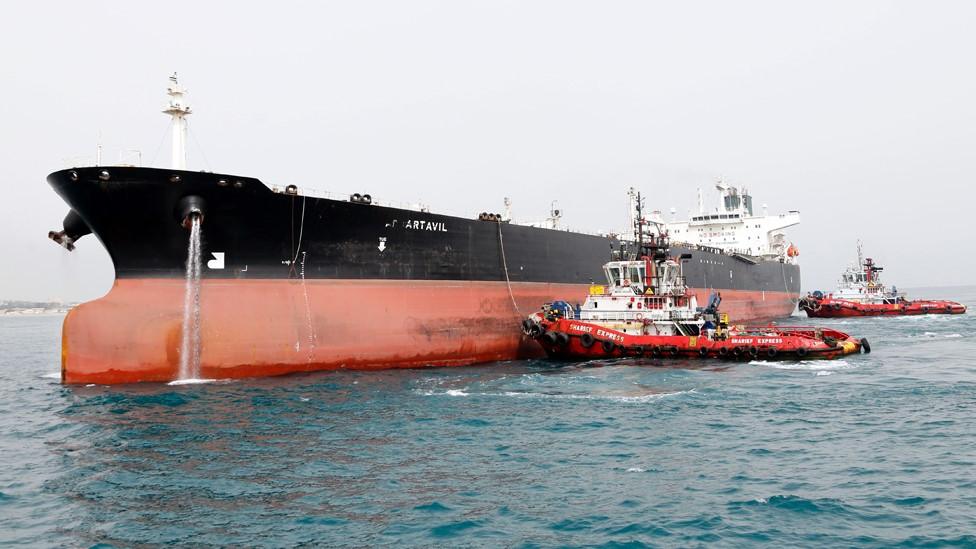Iran protests: At least 12 killed at unrest over petrol price rise
- Published
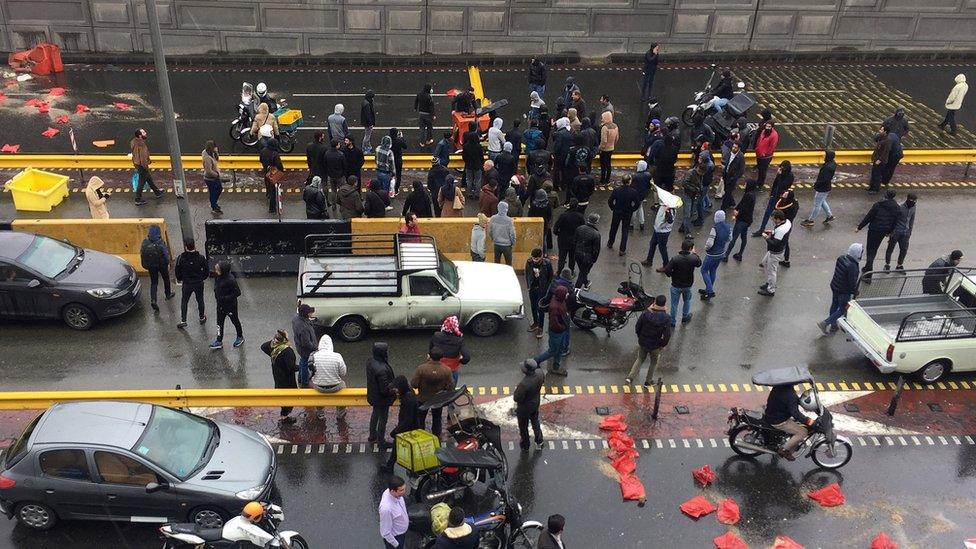
Protests have affected roads around the capital, Tehran
At least 12 people have been killed in Iran since protests against fuel price rises erupted three days ago, officials have said, although reports suggest the number of dead is far higher.
The situation on the streets is unclear on account of a nationwide internet shutdown. But demonstrations are reportedly continuing in some cities.
The government said Monday had been "calmer", despite "some minor issues".
Meanwhile, the powerful Revolutionary Guards demanded an end to the unrest.
A statement said Iran's "sworn and evil enemies" had once again attempted to "sow discord", and that the force would "firmly deal with the continuation of any kind of insecurity or actions to disrupt the people's calm and comfort".
Protesters took to the streets across Iran as fuel price rises were introduced
The foreign ministry also criticised the US for expressing support for the protesters.
Secretary of State Mike Pompeo tweeted that "the United States is with you", while the White House said it condemned the lethal force and severe communications restrictions used against demonstrators.
Foreign ministry spokesman Abbas Mousavi described Mr Pompeo's remark as "hypocritical" because Iran's economy had been crippled by sanctions reimposed by President Donald Trump last year in an attempt to force it to negotiate a new nuclear deal with world powers.
Allow X content?
This article contains content provided by X. We ask for your permission before anything is loaded, as they may be using cookies and other technologies. You may want to read X’s cookie policy, external and privacy policy, external before accepting. To view this content choose ‘accept and continue’.

The protests erupted on Friday after the government announced the price of petrol would be increased by 50% to 15,000 rials ($0.12; £0.09 at the unofficial market exchange rate) a litre and that drivers would be allowed to purchase only 60 litres each month before the price rose to 30,000 rials.
President Hassan Rouhani said the government was acting in the public interest, and that the money raised would be distributed to the country's neediest citizens.
However, the decision was met with widespread anger in a country where the economy is already reeling as a result of US sanctions that have caused oil exports to collapse and the value of the rial to plummet, and sent the inflation rate soaring.

Blackout suggests unrest is not over
By Rana Rahimpour, BBC Persian
Iran has experienced an internet blackout since Saturday afternoon, when the country's National Security Council reportedly ordered providers to cut off access to the internet and switch over to the nationwide "intranet", on which only selected websites are allowed.
For us journalists based outside Iran, it has been very difficult to get a real sense of how widespread the protests are. But the fact that the internet is still down, and that schools in dozens of cities are closed, suggests that the unrest is far from over.
Some people have managed to share videos of the protests despite the restrictions. Gunfire can be heard in them, but it is not easy to get a confirmed number of casualties.
During similar protests in January 2018, the authorities shut down the internet for a day or two. This time, it is unclear how long Iran will remain cut off from the world.

By Sunday the protests had reached some 100 cities and towns, the semi-official Fars news agency reported. At least 100 banks and 57 shops were set on fire, and about 1,000 people were arrested, it said.
Videos posted on social media by people in Iran showed protests in the capital, Tehran, as well as Tabriz, Isfahan, Kermanshah, Sanandaj and Shiraz.

On Monday, NetBlocks, which monitors internet access, said a "near-total internet shutdown" implemented by the Iranian authorities was still in place, external.
The internet blackout has stemmed the flow of information, but sources on the ground confirmed to BBC Persian by telephone that many people had been killed, injured or arrested.
The contacts said the protests had been widespread and that there was currently a heavy security presence on main streets and in public squares in major cities.
Allow X content?
This article contains content provided by X. We ask for your permission before anything is loaded, as they may be using cookies and other technologies. You may want to read X’s cookie policy, external and privacy policy, external before accepting. To view this content choose ‘accept and continue’.
The government had announced 12 deaths related to the protests by Monday morning, according to a tally by BBC Persian, but activists reported that at least 40 people had been killed.
Government spokesman Ali Rabiei told a news conference that there had been "gatherings in some cities, in some provinces" on Monday, but that "tomorrow and the day after we won't have any issues with regard to riots".
He also alleged that "rioters used knives and guns", and that a number of security personnel were "killed or taken hostage".
On Sunday, Iran's Supreme Leader, Ayatollah Ali Khamenei, voiced his support for the fuel price rise, saying "hooligans" and "counter-revolutionaries" were responsible for sabotage and arson.
- Published31 December 2017
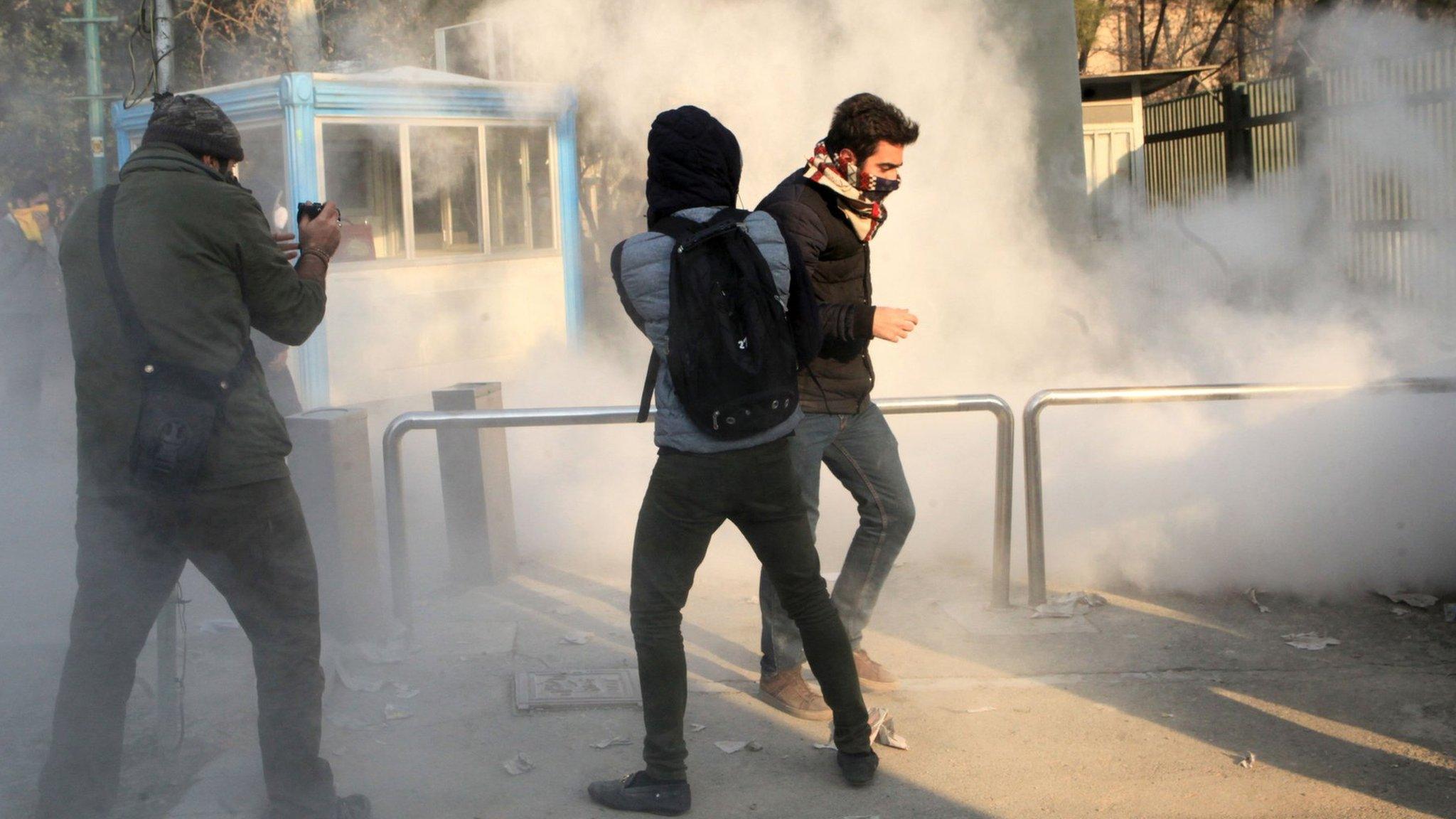
- Published30 December 2017
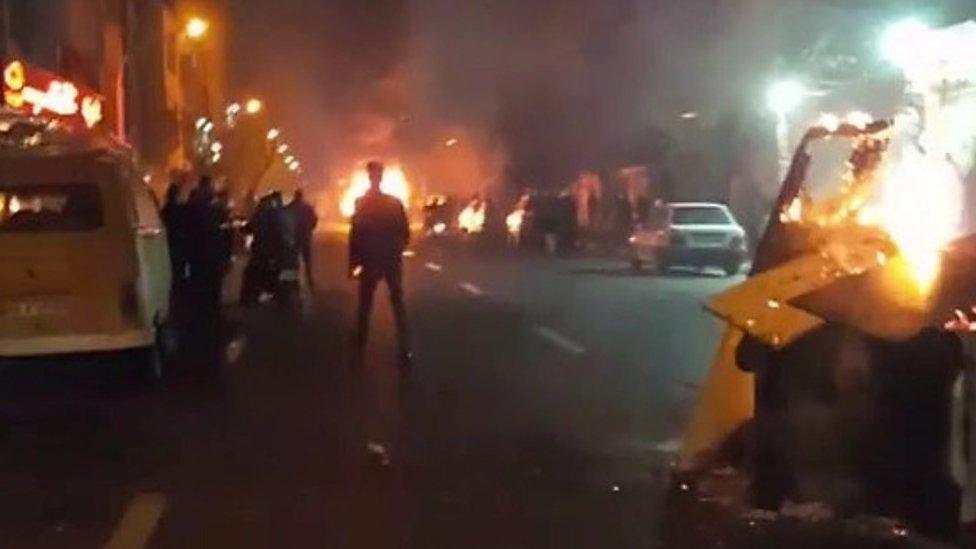
- Published10 November 2019
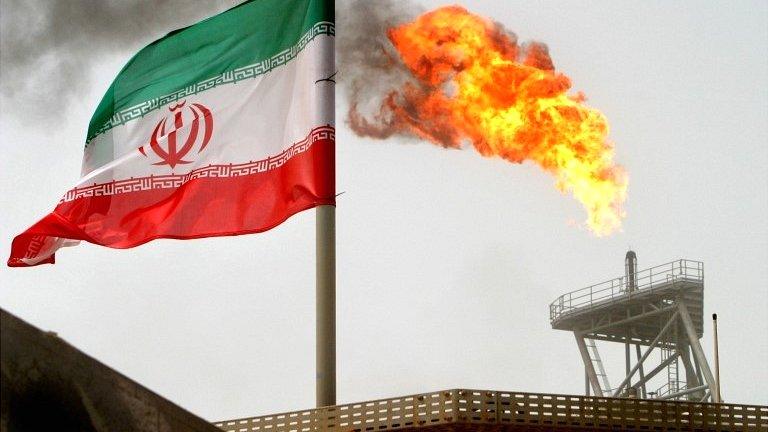
- Published23 July 2019
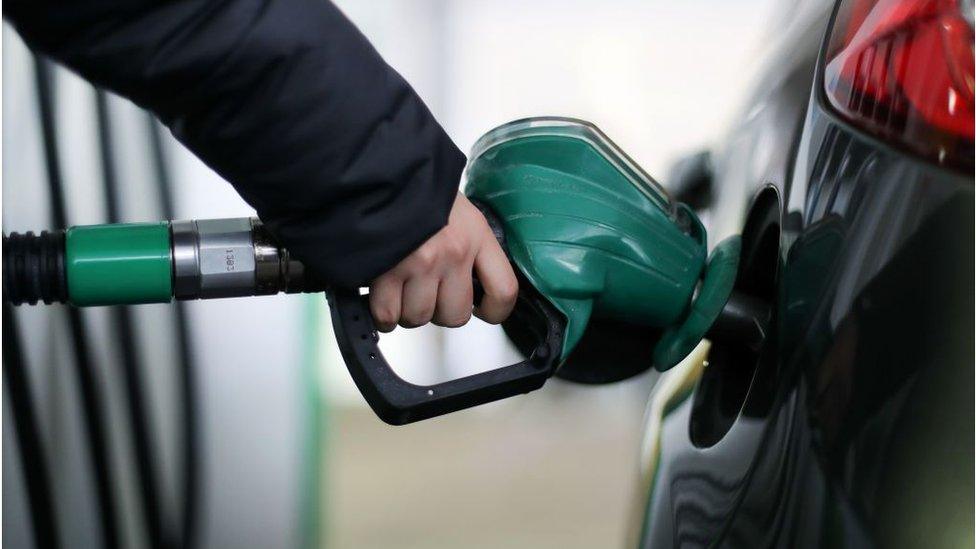
- Published22 April 2019
